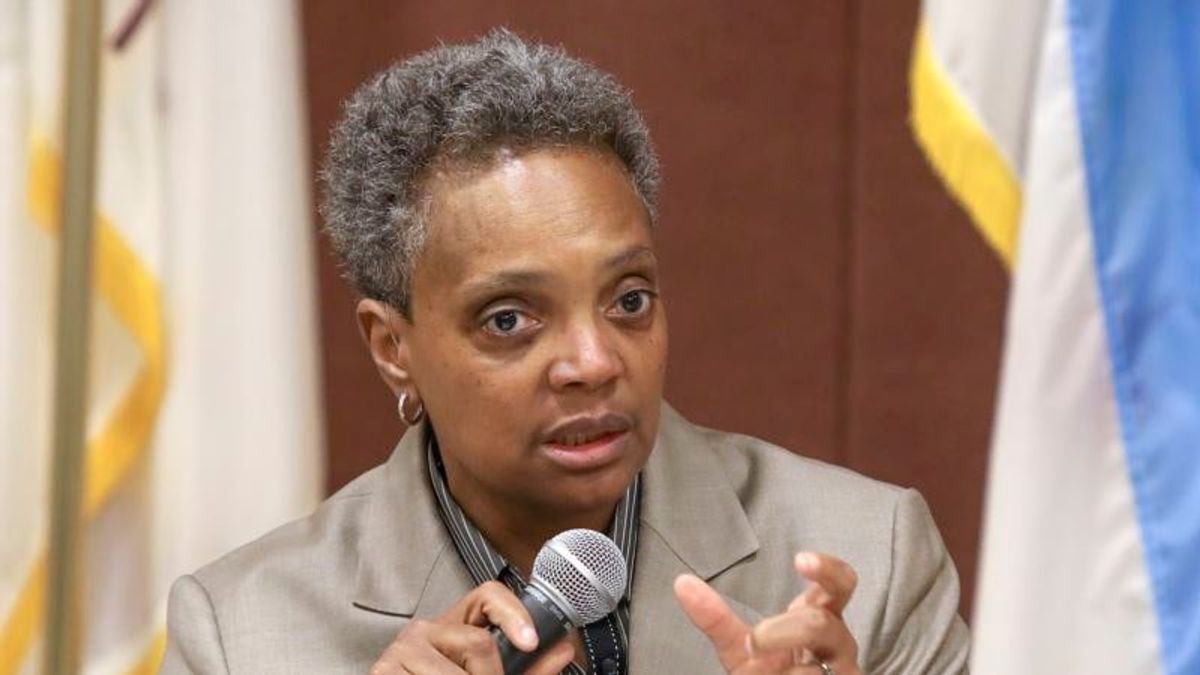
Historic Election: 1 of 2 Black Women Will Be Chicago Mayor
Historic Election: 1 of 2 Black Women Will Be Chicago Mayor

CHICAGO —
A former federal prosecutor who has never held elected office was vying for Chicago mayor on Tuesday against a powerful official whose political career spans decades, providing voters a clear contrast in a historic runoff already assured of elevating a black woman to lead the nation's third-largest city.
Lori Lightfoot, 56, who had served as an assistant U.S. attorney before entering private practice as an attorney, emerged as the surprising leader in the first round of voting in February when 14 candidates were on the ballot. She is matched up this time against Toni Preckwinkle, a former schoolteacher who served on the Chicago City Council for 19 years before becoming Cook County Board president in 2011.
Chicago will become the largest U.S. city to elect a black woman as mayor. The winner will join seven other black women currently serving as mayors in major U.S. cities, including Atlanta and New Orleans.
Lightfoot, who is openly gay, seized on outrage over a white police officer's fatal shooting of black teenager Laquan McDonald to launch her reformer campaign. That was even before Mayor Rahm Emanuel announced he wouldn't seek a third term amid criticism for initially resisting calls to release video of the shooting.
"I'm not a person who decided I would climb the ladder of a corrupt political party," Lightfoot said during a debate last month. "I don't hold the title of committeeman, central committeeman, boss of the party."
It's a not-so-veiled reference to Preckwinkle, who also leads the county's Democratic Party and has countered that her opponent lacks the necessary experience for the job.
"This is not an entry-level job," Preckwinkle has said repeatedly during the campaign. "It's easy to talk about change. It's hard to actually do it. And that's been my experience — being a change maker, a change agent, transforming institutions and communities."
The campaign between the two women got off to a contentious start, with Preckwinkle's advertising focusing on Lightfoot's work as a partner at Mayer Brown, one of the nation's largest law firms, and tagging her as a "wealthy corporate lawyer."
Preckwinkle also tried to cast Lightfoot as an insider for working in police oversight posts under Emanuel and police oversight, procurement and emergency communications posts under Mayor Richard M. Daley.
In one ad, Preckwinkle criticizes Lightfoot's oversight of the emergency communications in 2004 when a fire killed four children. A judge ordered Lightfoot to preserve 911 tapes after questions were raised about how the emergency call was handled. The ad notes some of the tapes were destroyed, prompting the judge to rebuke Lightfoot. The ad sparked a backlash from the family of three of the children killed, with their sister accusing Preckwinkle of trying to take advantage of her family's tragedy.
Lightfoot also responded by scolding her opponent for being negative while also airing ads pointing out Preckwinkle's connection to powerful local Democrats, including one under federal indictment.
Preckwinkle spent much of her time during the campaign answering for her ties to Chicago's political establishment. She and her supporters asserted her rise to Democratic Party leadership did not hinder her ability to oppose policies promoted by the city's ever-powerful mayors.
"My whole career has been about change, and change is action and results, not simply words," said Preckwinkle, who asserts her experience makes her better positioned to lead a city with financial problems and poorer neighborhoods that are racked by gun violence.
Despite the barbs on the campaign trail, the two advanced similar ideas to boost the city's finances.
Both candidates expressed support for a casino in Chicago and changing the state's income tax system to a graduated tax, in which higher earners are taxed at a higher rate.
Preckwinkle said that while downtown development should remain a priority, it should not be at the cost of neighborhood growth. She promoted additional investments in neighborhood schools, affordable housing and criminal justice reform.
Lightfoot said that as mayor, she would focus on investing in neighborhoods on the West and South Sides and bring transparency and accountability to City Hall. She added she also wants to end City Hall corruption and restore people's faith in government.
"The machine's been in decline for a while, but it still has a grip on certain things," Lightfoot said. "This is our opportunity to send it to its grave, once and for all."
 Trump Suggests Deferring Republican Health Plan Push to After 2020Next PostPelosi Says Biden Should Stop Being Touchy-feely With Women
Trump Suggests Deferring Republican Health Plan Push to After 2020Next PostPelosi Says Biden Should Stop Being Touchy-feely With Women





